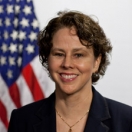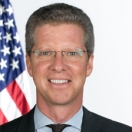
Pay For Success (PFS) is a simple but compelling idea. Instead of paying upfront for a social service that may or may not achieve the desired results, the government only pays once an intervention produces specific, measurable, and positive outcomes.
In other words, we pay for what works—we pay for success. And we’re doubling down. With the addition of 25 new PFS feasibility studies across the country, the Federal government is significantly increasing our investment, funded through the Social Innovation Fund (SIF), a federal program at the Corporation for National and Community Service.
Using the PFS model, investors often provide funds for service delivery upfront and are repaid by the government with a return if the desired outcomes are achieved. For example, an investor pays for a re-entry program for people rejoining the community after being incarcerated. If the program reduces the rate at which people end up back in jail, the investor gets a return on that initial investment. Rather than placing the risk of failure solely on taxpayers, the private sector now has a stake as well.
PFS feasibility studies further the Administration’s goal of building a pipeline of viable PFS projects by enabling State and local governments to assess whether PFS can help move the needle on their priority local challenges.
The Obama Administration’s efforts to explore and test PFS are part of our broader effort to capitalize on the dramatic increases in the data and information we have available, and the dramatic improvements in our ability to harness them – and to use these tools to modernize our government so it can better deliver for the American people.
The United States has now become the largest PFS market in the world because of visionary social entrepreneurs and bipartisan support among state and local leaders who want practical solutions that yield better results and enable more efficient use of resources.
With this past week’s announcement, the number of feasibility studies funded by SIF will nearly double from 33 to 58. From Boise to Baltimore and Virginia to Arizona, SIF grantees will work with community leaders to take a hard look at what resources communities already have – like how data can be leveraged to determine the impact of a new innovative program or how to scale an existing one that has proven successful in the past. They will take a deep dive into the particular problem, determine the most promising solutions, estimate the potential long-term savings or other value to the public, and chart out a path to implementation.
To build on feasibility studies already completed, the SIF is working with another grantee, the Nonprofit Finance Fund, to help nine PFS projects structure the agreements that are the backbone of PFS projects, a final step in preparing to implement a project. Altogether, the SIF has been the engine of growth for PFS in the United States. It is currently helping to develop almost 70 projects in 29 states and DC, with more to come.
We congratulate the SIF and its grantees engaged in the new and ongoing feasibility studies:
- Corporation for Supportive Housing
- Green and Healthy Homes Initiative
- Harvard Kennedy School Government Performance Lab
- Institute for Child Success
- National Council on Crime and Delinquency
- Third Sector Capital Partners
- University of Utah Sorenson Impact Center.
We have said before that taking an outcomes mindset in government is a valuable way to improve performance. PFS is a promising tool because it enables government to identify and invest in better, more effective solutions by focusing on – and only paying for – positive outcomes. We are glad so many communities, across party lines, are taking up PFS and looking to the SIF to help them do so.



